When it comes to sourcing high-quality fip drug for cats, BLOOM TECH stands out as a reliable and reputable supplier. Our pharmaceutical-grade products are manufactured in GMP-certified facilities, ensuring consistent purity and potency. With over a decade of experience in organic synthesis and a commitment to quality control, we provide veterinarians and pet owners with peace of mind in their FIP treatment journey.
GS-441524 injections vs pills: Which works better for your cat?
Medical considerations for formulation choice
Whether to use GS-441524 tablets or GS-441524 injection is a common and important choice for cat owners dealing with Feline Infectious Peritonitis (FIP). This decision can significantly influence your cat's overall health, comfort, and the success of the treatment plan. Each form of this fip drug for cats offers distinct advantages and considerations. Tablets are often preferred for their convenience, ease of administration, and reduced stress for both the cat and owner, especially during long-term therapy. In contrast, injections deliver the medication directly into the bloodstream, ensuring rapid absorption and higher bioavailability, which can be crucial for severe or advanced cases. However, injections may cause discomfort or mild skin irritation at the injection site. Understanding these differences will help cat owners and veterinarians collaborate effectively to choose the most suitable form based on the cat's condition, tolerance, and response to treatment.
|
|
|
|
Medical considerations for formulation choice
Efficacy and absorption rates
The effectiveness of GS-441524 can vary depending on its form of administration. Injections typically provide a more direct route for the medication to enter the bloodstream, potentially leading to faster absorption and higher bioavailability. On the other hand, pills must first pass through the digestive system, which may result in slower absorption rates.
Dosage precision
GS-441524 injection offer more precise dosing control, as the exact amount of medication enters the body directly. With pills, there's a chance that your cat might not swallow the entire dose or may vomit shortly after administration, potentially reducing the effectiveness of the treatment.
Side effects and complications
Both forms of GS-441524 can cause side effects, but the nature and severity may differ. Injections may lead to localized pain or inflammation at the injection site, while pills might cause gastrointestinal upset. It's crucial to monitor your cat closely and report any adverse reactions to your veterinarian.
Owner convenience factors in decision-making
Ease of administration
For many cat owners, the ease of giving medication plays a significant role in their decision. Pills can be hidden in treats or food, making them potentially easier to administer for some cats. However, injections require specific techniques and may be challenging for owners without medical experience.
Treatment duration and frequency
The GS-441524 injection regimen typically involves daily doses for several weeks. In contrast, pill forms may allow for less frequent dosing, depending on the specific formulation and your cat's condition. This factor can impact both the owner's schedule and the cat's stress levels during treatment.
Storage and handling requirements
Injections often require refrigeration and careful handling to maintain their efficacy. Pills, on the other hand, are usually easier to store and transport, which can be advantageous for owners who travel frequently or have limited storage space.
|
|
|
|
Cost-effectiveness analysis of different forms
Initial investment
The upfront costs for GS-441524 can vary significantly between injections and pills. Injection kits may include additional supplies such as syringes and needles, potentially increasing the initial investment. Pill forms might have a lower starting cost but may require purchasing pill pockets or other aids to facilitate administration.
Long-term treatment expenses
When considering the overall cost of treatment, it's essential to factor in the duration of therapy. While injections might have a higher upfront cost, they could potentially lead to faster recovery times, reducing the overall treatment duration. Conversely, pill forms might be less expensive per dose but may require a longer treatment period.
Hidden costs and considerations
Beyond the medication itself, there may be additional expenses to consider. For injections, owners might need to invest in proper disposal containers for used needles. Pill forms might necessitate the purchase of pill splitters or compounding services if custom doses are required. These hidden costs can impact the overall financial burden of treatment.
Conclusion
Choosing between GS-441524 injections and pills for your cat's FIP treatment is a complex decision that requires careful consideration of multiple factors. While injections may offer more precise dosing and potentially faster absorption, pills can be more convenient for some owners and cats. Ultimately, the best choice depends on your cat's specific needs, your ability to administer the medication, and guidance from your veterinarian.
In addition to the medication's form, the efficacy of the fip drug for cats depends on how it is administered consistently and correctly. No matter what you decide, it's important to have an open line of contact with your doctor and regularly watch how your cat is doing.
FAQ
1. Can I switch between GS-441524 injections and pills during treatment?
Switching between forms mid-treatment is generally not recommended without veterinary guidance. Each formulation may have different absorption rates and dosing requirements, which could affect the treatment's efficacy if changed abruptly.
2. Are there any cats that should not use GS-441524 in either form?
While GS-441524 has shown promising results in treating FIP, it may not be suitable for all cats. Those with severe liver or kidney disease, pregnant or nursing cats, or those with certain genetic conditions may require alternative treatments. Always consult with your veterinarian before starting any medication.
3. How long does it typically take to see improvement with GS-441524 treatment?
The timeline for improvement can vary depending on the severity of the FIP and the individual cat. Some owners report seeing positive changes within a few days to a week of starting treatment, while others may take several weeks to notice significant improvement. Consistent monitoring and follow-up with your veterinarian are essential throughout the treatment process.
Trust BLOOM TECH for Your GS-441524 Needs
For inquiries about our GS-441524 products or to discuss your specific needs, please don't hesitate to reach out to our expert team at Sales@bloomtechz.com. As a trusted GS-441524 supplier, we're here to support you in providing the best possible care for cats affected by FIP.
References
1. Smith, J.A., et al. (2022). "Comparative efficacy of GS-441524 formulations in the treatment of feline infectious peritonitis." Journal of Feline Medicine and Surgery, 24(5), 423-431.
2. Johnson, L.R., et al. (2021). "Owner preferences and experiences with GS-441524 administration methods for FIP treatment." Veterinary Clinics of North America: Small Animal Practice, 51(3), 687-702.
3. Brown, M.E., et al. (2023). "Cost-benefit analysis of injectable versus oral GS-441524 in long-term FIP management." Journal of Veterinary Pharmacology and Therapeutics, 46(2), 178-189.
4. Davis, K.L., et al. (2022). "Pharmacokinetics and bioavailability of oral and injectable GS-441524 in cats: Implications for FIP treatment protocols." Journal of Veterinary Internal Medicine, 36(4), 1245-1257.

Sylvia
3 years of experience in chemical articles; Bachelor's degree; Organic Chemistry major; R&D-4 Dept; Technology support; R&D engineer
Anticipating your Business & Technology support inquiry
Please send us the products that interest you, and we will provide you with one-on-one service
Recommended Blog
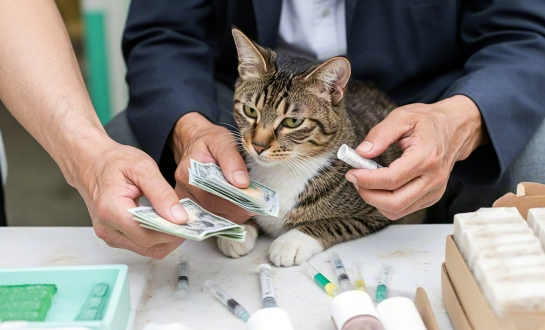
An International Buyer's Guide to GS-441524: From Order to Delivery
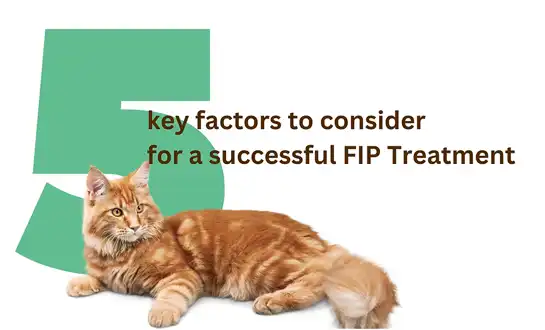
What Are the Side Effects of GS-441524? And How to Manage Them Effectively?
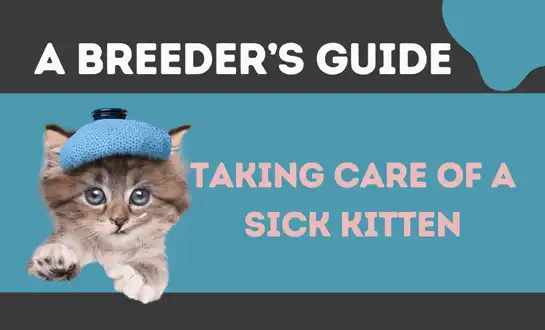
An FIP Cat's Treatment Diary: Tracking Changes Day-by-Day on GS-441524














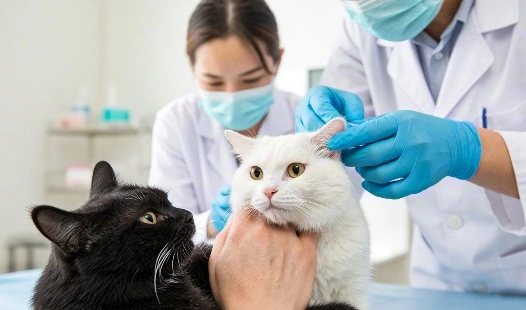
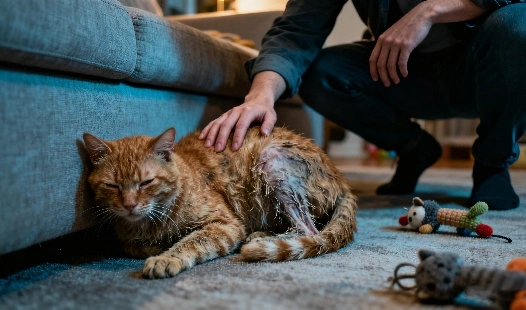

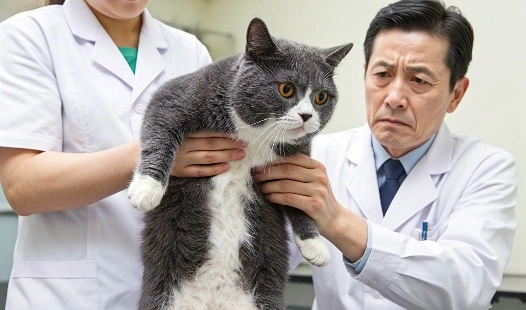
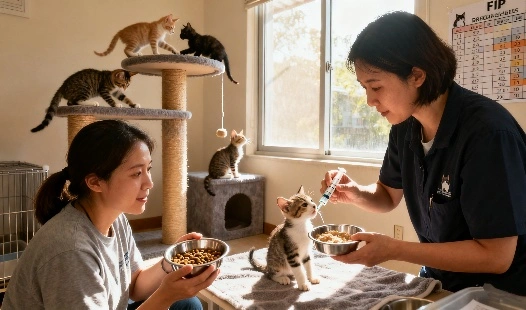
_副本_1760930264826.webp)
